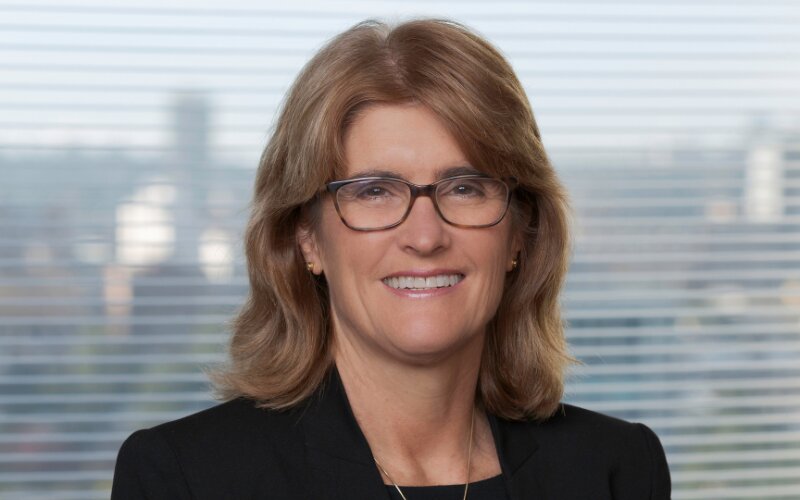Philip Lowe, along with incoming governor Michele Bullock were in parliament, Friday 11 August, facing the house of economics committee regarding the outlook on interest rates, flatlining productivity, and inflation.
Lowe’s major regret: overdoing the pandemic response - 12pm
Towards the end of the hearing, Lowe was asked whether he had any regrets during his time as RBA Governor.
This was his response:
“I wish I had understood the implications of the pandemic a bit more,” he said.
“Our mindset was to provide maximum support, maximum insurance to protect against the worst possible outcome, and we did that.
“It turned out we provided too much support and perhaps too much insurance and that’s contributed to inflation problems now.
“We didn’t fully understand the nature of the pandemic and how long it would last and what the implications would be for the economy…If we had a better understanding, then we would have responded differently.”
Zoning reform needed to combat housing affordability - 11am
Dr Lowe believes planning and zoning have big roles to play when it comes to housing affordability, productivity, and the quality of life.
“Regulation, particularly around zoning, is one of the biggest issues we face at the moment is the high cost of housing in the country,” Dr Lowe told Independent MP Allegra Spender.
“And that is debilitating for many economic and social and personal perspectives.
“Housing is expensive not because the cost of building a house or an apartment is expensive, it’s the land.”
What would it take to get inflation down quicker? - 10.50am
To engineer a faster return to the RBA’s 2-3% inflation target by 2024, the central bank would have to increase the cash rate to above 5%.
“It’s not an extra 25 basis points to get back by 2024,” Dr Lowe said.
“It’s maybe a full percentage point I’d say, at least.
“I tend to think roughly that 100 basis points gives you a quarter point a bit more or less, it depends a little bit on the environment and we can see that where other countries, other economies, their interest rates are actually significantly higher.”
Unemployment set to rise - 10.30am
Philip Lowe was asked whether unemployment will rise, given inflation has peaked.
While the unemployment rate has held steady at 3.5%, Dr Lowe said the central bank’s view is that unemployment would tick up slightly.
“Our sense is that for inflation to come back to 2-3%, then we’re going to have to see some moderation in growth in unit labour costs, and that’s why the pick up in productivity is so important,” he said.
“We’re hoping that the rise in unemployment will be modest but to get services price inflation back to a more sustainable rate.
“Our judgment is that that’s likely to be accompanied with some modest rise in unemployment.”
The central bank expects the jobless rate to hit 4.5%.
Consumers unhappy with bank profits are told to shop around - 10.20am
In response to the bank profiteering question, Dr Lowe said he believed CBA’s profit came from higher interest rates not being passed onto deposits.
“I can only encourage people who are worried about this issue to shop around and seek a better deal because there are product deposits out there at the moment that offer full transaction services that will pay you an interest rate of 5% or in some cases more,” he said.
“So if you don’t like the fact that banks are earning so much money, then I encourage you to shop around and make them work harder for your money and some will pay you more than 5%.”
Are banks profiteering? - 10.20am
In the wake of CommBank’s $10 billion profit result, Dr Lowe was asked whether banks are profit gouging.
Asked whether this was the case, he noted bank profits are not out of step with what was seen overseas.
“Over the past year, in most major economies, banks are earning between 10-15% return on equity at the moment because loan write-offs are low, because problem loans are low, and unemployment rates are very low,” he said.
“If you look across the entire ASX companies, the return on equity is averaging at kind of 15% or 16%. So it’s high, but it’s not out of line with what we’ve seen overseas or with other companies.”
The worst is over for struggling Aussies - 10.10am
Deputy Committee Chair Garth Hamilton asked Dr Lowe whether the central bank ever imagined interest rates to be above 4% and inflation to be as persistent as it has been.
“We certainly didn’t expect to get to this position,” he said.
“I know it’s been difficult, but the worst is over and we’re getting to a place now to return inflation back to target and a stronger labour market than we had before the pandemic.”
While Dr Lowe said “it is too early to declare victory” over inflation, it is “encouraging” that recent data is consistent with inflation falling back to the RBA’s 2-3% target range by end 2025.
“It is possible that some further tightening of monetary policy will be required to ensure inflation returns to target within a reasonable timeframe,” he said.
“Whether it not this is the case will depend upon the data and the board’s evolving assessment of the outlook and risks.
“The data is confident with the Australian economy continuing to travel along the narrow path I have spoken about for some time - that path is one that leads to inflation coming down and the unemployment rate remaining below the levels of the past 40 years.”
Rent caps would make housing shortage worse - 10am
Committee Chair Daniel Mulino then moved on to quiz Dr Lowe on rent caps.
Dr Lowe said increasing supply is the solution to Australia’s housing crisis and capping rents would not solve the issue.
“There’s been strong demand for rental accommodation, and the rate of addition to the housing stock is low,” he said.
“This year the population has increased by 2.5%. The number of dwellings in the country has increased by 1.5%. So there’s a big gap there.
“In most cases, rent controls reduce incentives to add to supply.”
First published on August 2023
Image from the Reserve Bank Australia



 Harrison Astbury
Harrison Astbury
 Harry O'Sullivan
Harry O'Sullivan


 Staff Writers
Staff Writers

